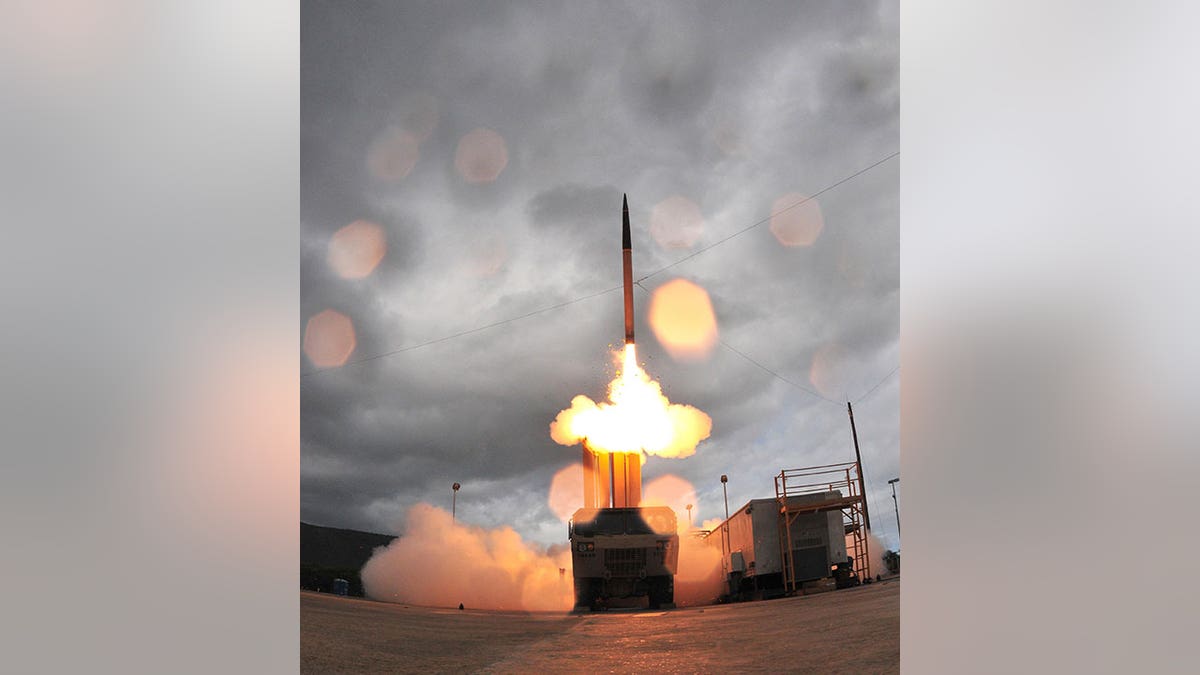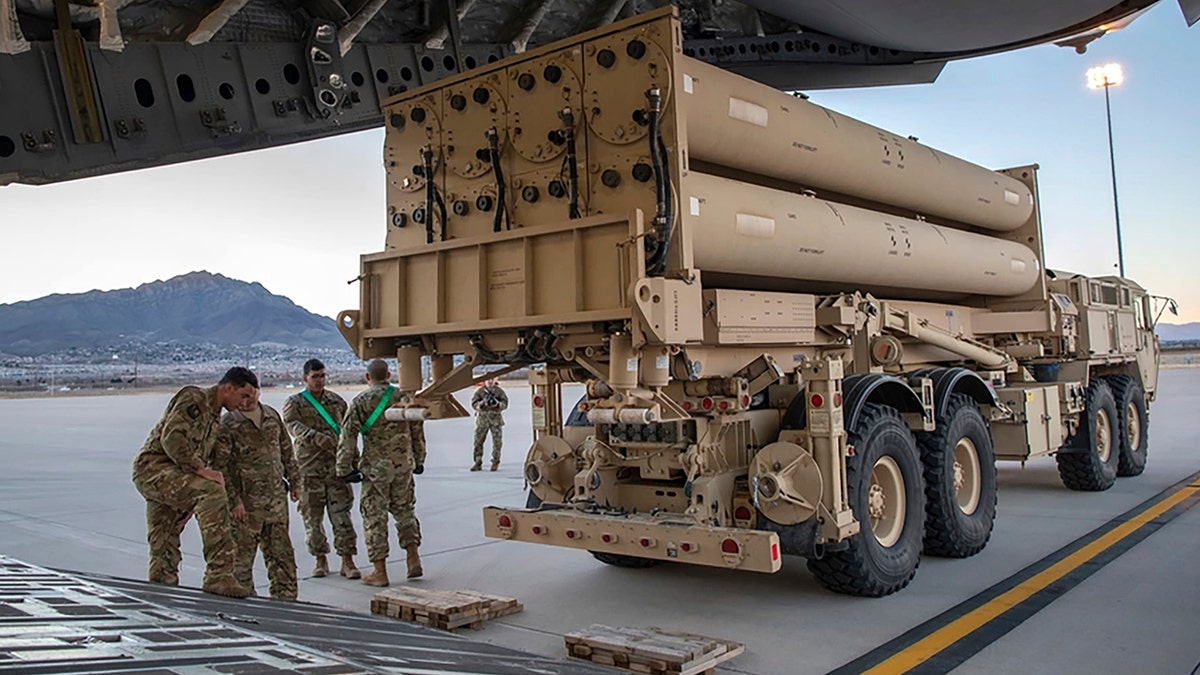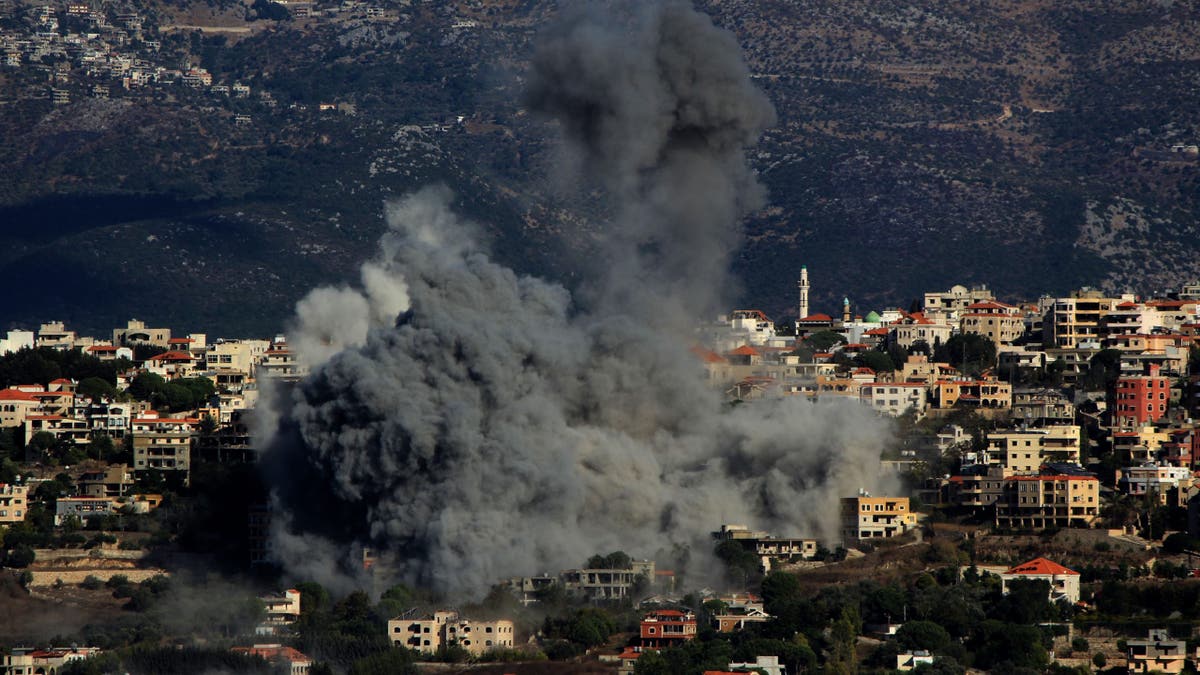The U.S. is now more deeply entrenched in the conflict in the Middle East after a pivotal move to send troops to Israel was announced this week.
On Monday, the Biden administration revealed it would offer Israel one of the U.S.’s highly sophisticated THAAD missile defense systems – as Israel braces for potential Iranian retaliation to the counter-attack it is planning after Tehran rained down missiles on Tel Aviv on Oct. 1.
Only U.S. troops can operate the system, and 100 of them will deploy to Israel. The Pentagon only has seven operable Terminal High-Altitude Area Defense (THAAD) batteries in its possession, and the one offered to Israel would presumably be among the seven.
Though Washington has armed Israel throughout its existence, putting boots on the ground for Israel’s defense is a rare departure from U.S. policy and the first U.S. deployment there since the outbreak of war after the Oct. 7 Hamas attack.
“It’s a bit unprecedented,” said EJ Kimpton, policy director at the U.S. Israel Education Association.
“Israel’s mantra has been, you know, with ‘Never Again,’ meaning we will defend ourselves by ourselves, obviously working with allies, but that we should be able to defend our country and not be dependent upon others,” Kimpton went on. “It changes the dynamic between the U.S. and Israel in Israel’s war fighting over the years.”

The THAAD system provides a transportable, rapidly deployable ability to intercept and destroy ballistic missiles. (Missile Defense Agency/ US Department of Defense)
“This would be the first time that U.S. personnel would be actively engaged in essentially fighting a war with Israel if Iran were to carry out additional strikes.”
NETANYAHU HITS BIDEN ADMIN, SAYS ISRAEL – NOT US – WILL DECIDE HOW TO HANDLE IRAN
From pushing Israel to a cease-fire, the U.S. has pivoted to containing the war in the Middle East, to seemingly accepting the fate of U.S. involvement in the conflict.
The U.S. has some 43,000 troops deployed elsewhere in the Middle East and recently sent a “few thousand” to the region within the last few weeks to be ready to defend Israel if necessary.
“It’s inescapable to see it as anything else [than escalation], the United States is now actually sending troops. We did not do that in Ukraine,” Trita Parsi, vice president of the Quincy Institute for Responsible Statecraft, told Fox News Digital.
Sending U.S. troops to Ukraine is a non-starter in American discourse – a popular refrain among supporters is that such aid will prevent U.S. troops from ever having to put themselves in Russia’s line of fire.
“We may end up having American casualties, and to put soldiers in that type of vulnerable situation for something that is not the defense of the United States itself, I think, is a very serious step taken by the administration,” said Parsi.
In the past, Iranians have targeted military installations, including Israeli air defense systems. The THAAD system is expected to be able to intercept ballistic missiles launched from Iran and Yemen and shoot down any short-range missiles launched by Hezbollah from Lebanon.
Others question why the administration is supplying the system with no real off-ramp to the conflict or U.S. involvement in it. Israel’s mission to eradicate Hezbollah and Hamas has now drawn it into direct conflict with Iran, and hope for peace anytime soon appears to have faded.
“Why are we keeping U.S. troops in harm’s way in Iraq and Syria with no clear mission or defensive strategy, while deploying critical defense systems like THAAD to Israel?” Jason Beardsley, senior coalitions adviser to Concerned Veterans for America, questioned.

The THAAD system is loaded onto a 4th Airlift Squadron C-17 Globemaster III at Fort Bliss, Texas. (Staff Sgt. Cory D. Payne/U.S. Air Force/AP)

Heavy smoke billows from an Israeli airstrike on the Lebanese southern border town of Khiam. (Stringer/picture alliance via Getty Images)
“The reality is, we’re funding both sides of this conflict – directly aiding Iraq, whose Iranian-backed militias target our forces, and indirectly supporting Israel’s defense without addressing the real vulnerability: U.S. personnel scattered across the Middle East, with Iran’s proxies actively targeting our troops.”
IDF MEETS LITTLE RESISTANCE FROM HEZBOLLAH AFTER WEEKS OF HITTING TERROR TARGETS, OFFICIALS SAY
The U.S. has some 2,500 troops in Iraq leading a coalition that provides extensive support to the Iraqi Security Forces to fight ISIS. But Iran has already tightened its grip on Baghdad and the mission its forces carry out.
The THAAD will assist Israel’s other missile defenses in what could be the Biden administration bracing for escalation: an aggressive counter-attack from Iran to an aggressive counter-attack from Israel.
For two weeks, the world has waited to see how Israel responds to the 200 missiles Iran fired at the heart of Tel Aviv.
A violent showing from Israel might deter Iran from wanting to pick a larger battle. But in the Biden administration’s view, a disproportionate response risks a tit-for-tat that could lead to all-out war.
President Biden may have offered the system as a way to coax Prime Minister Benjamin Netanyahu to follow his recommendation: to make sure Israel’s counterstrike to Iran’s missile attacks is “proportional” – by going after military installations – not nuclear or oil facilities.
CLICK HERE TO GET THE FOX NEWS APP
“I think the administration may be thinking that by offering this, they can convince the Israelis not to go that far,” said Parsi.
“If you truly want to put an end to this, then sending the same system that actually makes it easier for Israel to escalate is not the answer… Sometimes, it’s really difficult to discern who is actually making the policy and what is the policy.”
Netanyahu told Biden he was willing to strike military facilities when they spoke on the phone last week, according to a Washington Post report. But after that report, Netanyahu said in a statement he would not be making any decisions based on Biden’s insistence on proportionality. “We listen to the opinions of the United States, but we will make our final decisions based on our national interest.”
